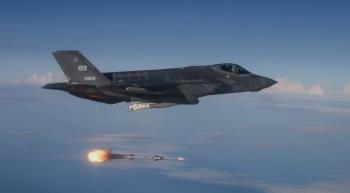Alwaght- The 12th meeting of the Azerbaijan-Turkey High-Level Military Dialogue was held on Tuesday in Azerbaijan's capital, Baku.
The co-chairman of the meeting from the Azerbaijani side was Deputy Defense Minister, Lieutenant General Karim Valiyev, and from the Turkish side – the Second Chief of the General Staff, Corps General Metin Gürak.
The two-day summit is hosted by a capital every year. Various issues like the relations with Armenia as well as the alliance with the US and NATO affect the military approaches of Ankara and Baku and the meeting’s discussions.
The 12th summit
Since Ilham Aliyev assumed the power as president in 2003, Baku established warmer ties with Ankara mainly because of Turkish backing in the war against Armenia over the disputed Karabakh region and also the special insistence by the former Azerbaijani leader to keep cooperation with Turkey at the highest level. On the other side, Turkey, seeking to broaden its strategic depth in Central Asia and the Caucasus, found interests in boosting military-security cooperation with Azerbaijan.
The first round was held in 2007 with its theme being the expansion of the military ties. This year’s summit discussed the levels of bilateral cooperation in military, security, military training, and military industries. At the meeting, the two sides agreed on a plan of action for 2020.
Baku-Ankara military cooperation: goals and levels
Turkey was first to recognize Azerbaijan as an independent state in 1991, on the heels of the collapse of the Soviet Union.
First military relations between the two countries were initiated in 1992 when the two inked an agreement facilitating military training. In 2010, the Azersimtel military industrial group of Azerbaijan said it sealed a deal with Turkey’s MKE mechanical-chemical company to launch a joint military industry project. The cooperation was started on a $200 million Turkish investment. The first phase included manufacturing arms for Azerbaijan's armed forces. In December 2010, the two countries widened the range of their military cooperation, offering exchanged guarantees of support for each other’s militaries. They agreed that if a country is attacked by a foreign country the other will assist it militarily. The investment is active for 10 years. Over 20 military companies are working within the framework of the agreement in Azerbaijan.
Since 2010, Azerbaijan military doctrine allowed for the establishment of foreign military bases on the country’s soil. Since then, Ankara and Baku embarked on strengthening their military cooperation by setting up a Turkish military base in Nakhchivan, an autonomous republic of Azerbaijan. One aim of this joint work was to make provocations against Armenia and block the normalization of Turkish ties with Armenia. Ankara and Yerevan’s relations are frayed for nearly a century as the Turkey of Ottoman rule is accused of ethnic cleansing of the Armenians. Arman Navasardyan, an Armenian diplomat, said that some home Azerbaijani circles legitimize the Turkish military presence in Nakhchivan. Turkey sends the army to this autonomous republic. That is while, the diplomat continued, article 5 of the treaty bans any military deployment to the region. He added that according to article 4 if Azerbaijan or Turkey make such a deployment, this will mean redrawing of borders drawn for Turkey in 1920. In other words, Turkish territorial integrity will be compromised.
On the other side, Russia is extremely sensitive about the Turkish military presence in Caucasus where Russian red lines are set for any NATO members. Yeni Musavat newspaper of Azerbaijan highlights this approach. It reported that Russia does not allow Turkey to get a toehold in the Caucasus. No matter how much Turkish military strength is thrown behind Azerbaijan with arms, vehicles, advisors, and trainers, Ankara cannot formalize its military presence in Azerbaijan. Despite that, Turkey tries to bolster its military foothold in Nakhchivan gradually and through some economic pacts.
In early June this year, Turkey and Azerbaijan held military drills in Nakhchivan. Azerbaijan ministry of defense said in the maneuvers 5,000 troops took part, in addition to 200 tanks and armored vehicles, 180 missile and artillery units, 31 fighter jets and helicopters, and several drones and other modern facilities recently delivered to the two militaries. In addition to expanding militarily in the region, Turkey seeks to assess the Russian and Armenian reactions behind these drills.
Moreover, Azerbaijan lays territorial and geopolitical claims against neighboring Armenia. Advanced military cooperation with Turkey serves as a tool to put security and political strains on Armenia. Over the past years, Armenia showed interest in diplomatic normalization with Turkey, only to find Azerbaijan negatively responding to this intention.
Still, here we should not ignore the big competition grounds between Ankara and Baku. Azerbaijan established military cooperation with the Israeli regime and continues to develop militarily by welcoming all foreign resources. This sets a security puzzle for Turkey to solve. Still, the two seek to conceal this cleavage by staging symbolic joint identity measures and maintaining the military partnership. This has been a focal point in the bilateral meetings over the past three years.
But the degree of success of the Turkish policy in the Caucasus remains uncertain as key figures in the ruling Turkish party Justice and Development Party such as Ahmet Davutoglu who is the architect of strategic depth doctrine for Central Asia and the Caucasus break with President Recep Tayyip Erdogan’s administration.



























